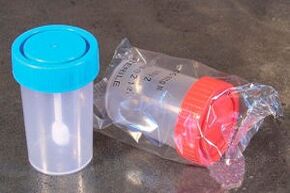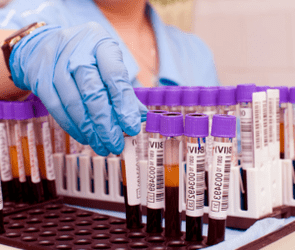
Parasite testing in adults is a reliable way to detect intestinal infections and other forms of helminth infections. Based on the results obtained during the study, the specialist prescribes appropriate treatments.
Check for parasites regularly, not when symptoms indicate the presence of worms. Similar studies are needed for both children and adults.
basic way
Kal

The traditional way to detect worms in humans is through stool analysis. During the study, experts examined a piece of feces for parasite eggs. To get the most reliable results, at least 2-4 studies are done with a period of several days.
It helps to identify parasites such as:
- roundworms, or roundworms;
- tapeworms (cestodes);
- fluke (leafworm).
This parasite analysis, quite simply, cannot confirm the reliability of the results.
For reliable results, stool samples should be delivered to the laboratory within 45 minutes of a bowel movement. If this is not possible, you can store the sample container in the refrigerator, but for no longer than 8 hours.
co-program histology
The next method used to diagnose worms in adults is co-programming histology. This study involves micro-analysis of the composition of feces based on the study of its fraction. Such a procedure will reveal the larvae of the worms, their body fragments, as well as the presence of mature adult individuals.
The disadvantage of this technique is the inability to identify the specific type of parasite that develops in the human body.
Blood

The most effective are studies based on the patient's blood. This analysis identifies antibodies and antigens present in the blood to certain types of parasites. It also provides information about the type of helminths, their fertility and their numbers.
Since the invasion of helminths is characterized by the release of toxic waste products of the parasite, the composition of the blood changes. This allows doctors to suspect the presence of worms.
A variation of this study is the enzyme immunoassay.
The sensitivity of this method is quite high (reaching 90%). Even if any other study does not reveal the presence of worms, enzyme-linked immunosorbent assays provide comprehensive data on the type and prevalence of helminth infections.
Blood samples for the study were taken on an empty stomach, from a vein.
Blood samples are tested within 2-5 days. The results obtained are decoded by the attending physician.
The analysis will allow monitoring of disease dynamics due to helminthic invasion.
What parasitic diseases were detected by this study? It:
- roundworm disease;
- fascioliasis;
- amoeba;
- toxoplasmosis;
- giardiasis;
- opisthorchiasis;
- skin and visceral leishmaniasis;
- cyst disease.
You can perform tests for parasites in various private clinics, where specialists guarantee quick results.
When to use
Sometimes helminthic invasions occur without obvious symptoms, which greatly complicates both the possibility of timely diagnosis and treatment. However, there are characteristic features, among them:
- persistent headache;
- frequent colds;
- constipation;
- sleep disorders;
- fragility of nails;
- the appearance of cracks on the heels;
- intestinal disorders;
- itching in the anus.
The parasitic invasion is fraught with serious complications. A large number of worms connected by a ball can cause intestinal obstruction. Among other dangerous consequences are vitamin deficiency, beriberi, anemia, jaundice, chronic cell damage that causes the development of cancer.






































